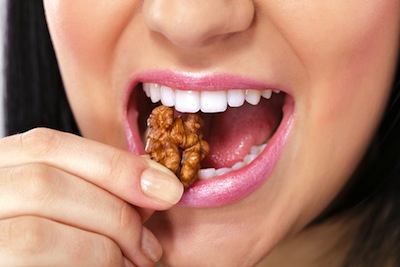
by Dr. Jacqueline S. Allen | Apr 22, 2015 | Blog, Cracked Teeth, Endodontics, Phoenix Endodontic Group
 Cracked teeth are a common malady in the endodontic world. Dr. Allen of Phoenix Endodontic Group treats this problem frequently and notes some common causes, often food-related. Here’s what you should know about foods that commonly cause tooth breakage and what to do if you experience the issue.
Cracked teeth are a common malady in the endodontic world. Dr. Allen of Phoenix Endodontic Group treats this problem frequently and notes some common causes, often food-related. Here’s what you should know about foods that commonly cause tooth breakage and what to do if you experience the issue.
One of the leading food-related culprits that cause cracked teeth is ice. The impact of the tooth striking the very hard surface of the ice as you chew places excessive stress on the tooth’s enamel. The tooth may crack instantly or over time may incur many microscopic fractures until the tooth eventually breaks apart. The result can be quite painful and require major work to fix.
In addition to ice, other frequent fracture-causing foods are hard candy and smaller nuts, says Dr. Allen. Holidays tend to generate lots of patients with cracked teeth since such treats are more easily accessible. Though candy in any form is not good for your teeth, if you choose to eat hard candy it should be sucked on rather than chewed to prevent dental fractures. Be cautious when eating hard nuts and don’t nibble them with your front teeth.
Cracked teeth can also result from random eating incidents. One patient cracked a tooth on a pebble in her salad, and in another unusual circumstance , A patient was chewing the marrow out of a bone and accidentally bit the bone, Dr. Allen describes. These types of occurrences may not be avoidable, unfortunately. Even if you do not notice any visible damage from accidentally biting something very hard, it’s best to have your tooth checked out after the incident.
Should you experience cracked teeth from eating or from any other incident, talk to your endodontist right away. Generally the milder the damage, the less extensive the work needed to repair it. If the damage is ignored the chances of the tooth being eventually lost will increase exponentially.
Dr. Allen and her colleagues at Phoenix Endodontic Group are experts at handling cracked teeth and more, giving you the best odds of keeping your natural teeth. Don’t hesitate to reach out right away for best results!

by Dr. Jacqueline S. Allen | Mar 30, 2015 | Blog, Dentistry, Endodontics, Sports
 As the spring training crowds populate the valley and amateur spring sports are beginning, Dr. Allen of Phoenix Endodontic Group has some wise words to help players avoid dental injuries.
As the spring training crowds populate the valley and amateur spring sports are beginning, Dr. Allen of Phoenix Endodontic Group has some wise words to help players avoid dental injuries.
The speed and velocity of a thrown or hit fastball is certainly impressive, and can be a major danger to your beautiful teeth. Imagine this projectile hurtling towards you at speeds over 100mph. Losing your focus for even a second could potentially result in significant damage to your teeth and mouth. Dr. Allen identifies the most common baseball dental injuries as Avulsed (knocked-out) teeth and fractures of the teeth, which are painful and avoidable.
The best method of preventing dental injuries is very simple. WEAR A MOUTHGUARD. This is basically the only way to protect the teeth during contact sports, Dr. Allen warns. These are found at any store that carries sporting goods and should be considered a mandatory part of your equipment as a baseball player.
Should you suffer a knocked out tooth, a few tips may improve your chances of saving the tooth. First, retrieve the tooth gently, grasping it only by the chewing surface and never the root. Once the tooth has been acquired, rinse it thoroughly with clean water. Do not scrub the tooth or clean it with anything other than a washed finger and clear water. Try to reinsert the tooth back into position if possible and keep it in place with your fingers or closed mouth. If you are not able to reinsert the tooth, store it in milk (or failing that, inside your cheek) and get to your Endodontist immediately. Do not let the tooth dry out or wrap it in napkins or cloth.
Dental injuries like cracked or fractured teeth should also be attended to as soon as possible to help avoid further deterioration of the tooth. Prompt attention generally results in a less complex repair process and better chances of saving the tooth.
Dental injuries are extremely preventable with a little precaution. Talk to Dr. Allen about protecting your teeth during baseball and similar sports. Should you suffer a dental emergency, the fantastic doctors and staff at Phoenix Endodontic Group will save the day!
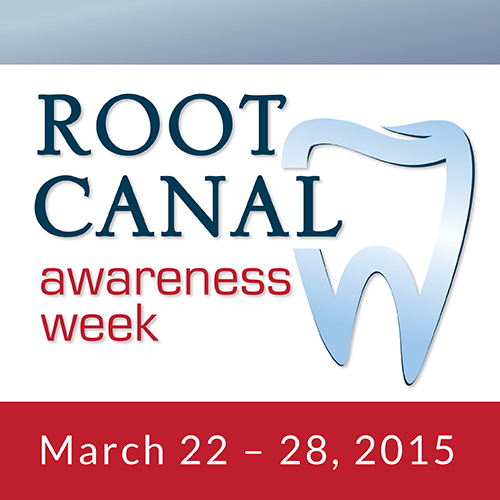
by Dr. Jacqueline S. Allen | Mar 23, 2015 | Blog, Endodontics, Phoenix Endodontic Group, Root Canal
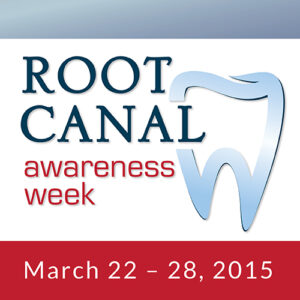 Root canal treatment has come a long way since its earliest days in the 17th century. Technology and treatment methods have advanced so much that root canals can be completed in mere hours with little discomfort. Dr. Allen of Phoenix Endodontic Group provides some information on this tooth-saving procedure. Just in time for Root Canal Awareness Week!
Root canal treatment has come a long way since its earliest days in the 17th century. Technology and treatment methods have advanced so much that root canals can be completed in mere hours with little discomfort. Dr. Allen of Phoenix Endodontic Group provides some information on this tooth-saving procedure. Just in time for Root Canal Awareness Week!
Unpleasant root canals are a thing of the past thanks to gifted Endodontists, new materials, better magnification and advanced tools and techniques. During treatment, your doctor will x-ray or scan the troublemaking tooth to determine a course of action. The infected pulp inside the tooth will be completely removed and the tooth cleaned thoroughly. To replace the compromised pulp, the tooth is refilled using a special material called gutta percha and sealed. The result is a shining tooth and a smiling patient!
Expert endodontists such as Dr. Allen are highly trained in the art of saving infected teeth and are well informed on the best methods of treatment. Dr. Allen is excited about the future of the field, especially as new technologies and techniques make their way into the spotlight. Pulpal regeneration (basically bringing a dead tooth back to life) is a new and exciting advancement in endodontics, Dr. Susan says. While many damaged teeth can be saved today with timely attention, this type of technology could boost that success ratio even higher.
For those patients who are nervous about dental or medical procedures, there are multiple solutions. These can range from something as simple as nitrous oxide during the procedure, to a pre-appointment anxiolysis medicine, all the way to light IV sedation depending on the level of anxiety, Dr. Allenadvises.
The best strategy for a successful root canal is to treat it promptly. Seeing your general dentist on schedule will help identify problems that are in early development, and visiting Dr. Allen will ensure that you receive the most skilled treatment possible.
For more information about Root Canal Awareness Week or other dental questions, talk to the friendly and knowledgeable staff at Phoenix Endodontic Group!

by Dr. Jacqueline S. Allen | Feb 23, 2015 | Blog, Endodontics
 In past decades, a common dental care complaint was the great discomfort of a root canal. Quite happily, those days are long gone thanks to Endodontists like Dr. Allen at Phoenix Endodontic Group. Putting off a root canal is something you should never do for a number of reasons.
In past decades, a common dental care complaint was the great discomfort of a root canal. Quite happily, those days are long gone thanks to Endodontists like Dr. Allen at Phoenix Endodontic Group. Putting off a root canal is something you should never do for a number of reasons.
When you need a root canal, it is generally because the inner pulp of your tooth has become infected or damage to your tooth’s nerve has somehow occurred. During the root canal process the tooth is thoroughly cleaned, repaired and sealed. This alleviates the pain and can save the tooth in the majority of cases.
The longer you wait before having the procedure, the more infected and deteriorated the tooth becomes. You could ultimately lose the tooth but could also suffer pain and infection creating a danger to your overall health, Dr. Allen warns. Infection that progresses and enters the blood stream can cause serious problems for your organs and make you very sick. Intense pain may impact your blood pressure and aggravate other medical conditions. These are completely avoidable situations if the tooth is treated promptly.
Having a root canal as soon as possible saves time and money by treating a simpler problem, helps avoid complications and gets rid of a patient’s pain quickly. With all of the benefits to having immediate treatment, then why do patients seem to procrastinate when it comes to a root canal? Dr. enAll states, Unfounded FEAR of the procedure is the number one cause. Most root canal treatments can be done with minimal to no pain. For those patients who STILL can’t seem to get past their intimidation, Dr. Allen reminds them “There are other options as well, to alleviate the fear.”
Considering the incredible advancements in technology and technique when it comes to root canals, there is no good reason to prolong your dental agony. Dr. Allen and the staff at Phoenix Endodontic Group will help you efficiently and expertly, to have you smiling comfortably in no time. Call today to schedule your treatment!
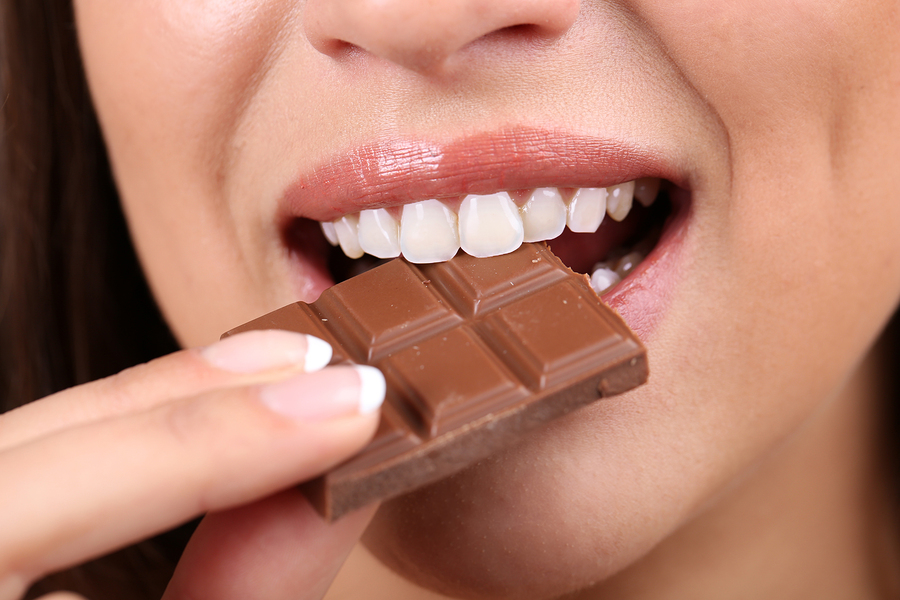
by Dr. Jacqueline S. Allen | Feb 16, 2015 | Blog, Endodontics, Endodontist, General Information
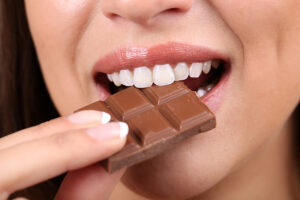 A day in the life of your Phoenix Endodontic Group brings many different types of cases into the office. One common visitor who comes in for Dr. Allen’s expertise is the candy connoisseur. You may know what too many sweets can do to your waistline, but do you know what effect it may have on your teeth?
A day in the life of your Phoenix Endodontic Group brings many different types of cases into the office. One common visitor who comes in for Dr. Allen’s expertise is the candy connoisseur. You may know what too many sweets can do to your waistline, but do you know what effect it may have on your teeth?
Sugar is a highly toxic substance to your tooth enamel and is present in many types of food and drinks. Soda, fruit juices, cookies and candy are all prime culprits that cause tooth decay, especially if allowed to linger in your mouth. Ingestion of sugar promotes the plaque that eats away at your teeth. A particularly bad type of sweet is sticky candy. Soft sticky candies often get caught between the teeth and if you aren’t a good flosser, can cause cavities in that area, says Dr. Allen.
Another dental problem could be caused by eating hard candy. Extremely hard candies that are “chewed” can also cause damage (cracks) to the tooth, explains Dr. Allen. This type of damage allows bacteria to invade the tooth and infect the inner pulp and root system. Eventually a problem of this nature may require your endodontist to perform a root canal. If you are going to consume hard candies, avoid biting or chewing them, especially with your more vulnerable front teeth.
As well-intentioned as patients are in their desires to follow a healthy diet and practice good dental habits, no one is perfect in either arena. If you are going to enjoy a sugary snack, then always attempt to brush afterward. If that is not possible, then rinsing your mouth out with water can help, but minimally, states Dr. Allen. Be as diligent as possible in flossing after sticky treats.
Sugar is acceptable in moderation, especially if you practice good dental habits when you eat sweets. However, it is far more common that it will cause problems with your teeth. If you are a lover of these kinds of treats, talk to Dr. Allen, your Phoenix endodontist, for advice on how to prevent dental damage.

 Cracked teeth are a common malady in the endodontic world. Dr. Allen of Phoenix Endodontic Group treats this problem frequently and notes some common causes, often food-related. Here’s what you should know about foods that commonly cause tooth breakage and what to do if you experience the issue.
Cracked teeth are a common malady in the endodontic world. Dr. Allen of Phoenix Endodontic Group treats this problem frequently and notes some common causes, often food-related. Here’s what you should know about foods that commonly cause tooth breakage and what to do if you experience the issue.







